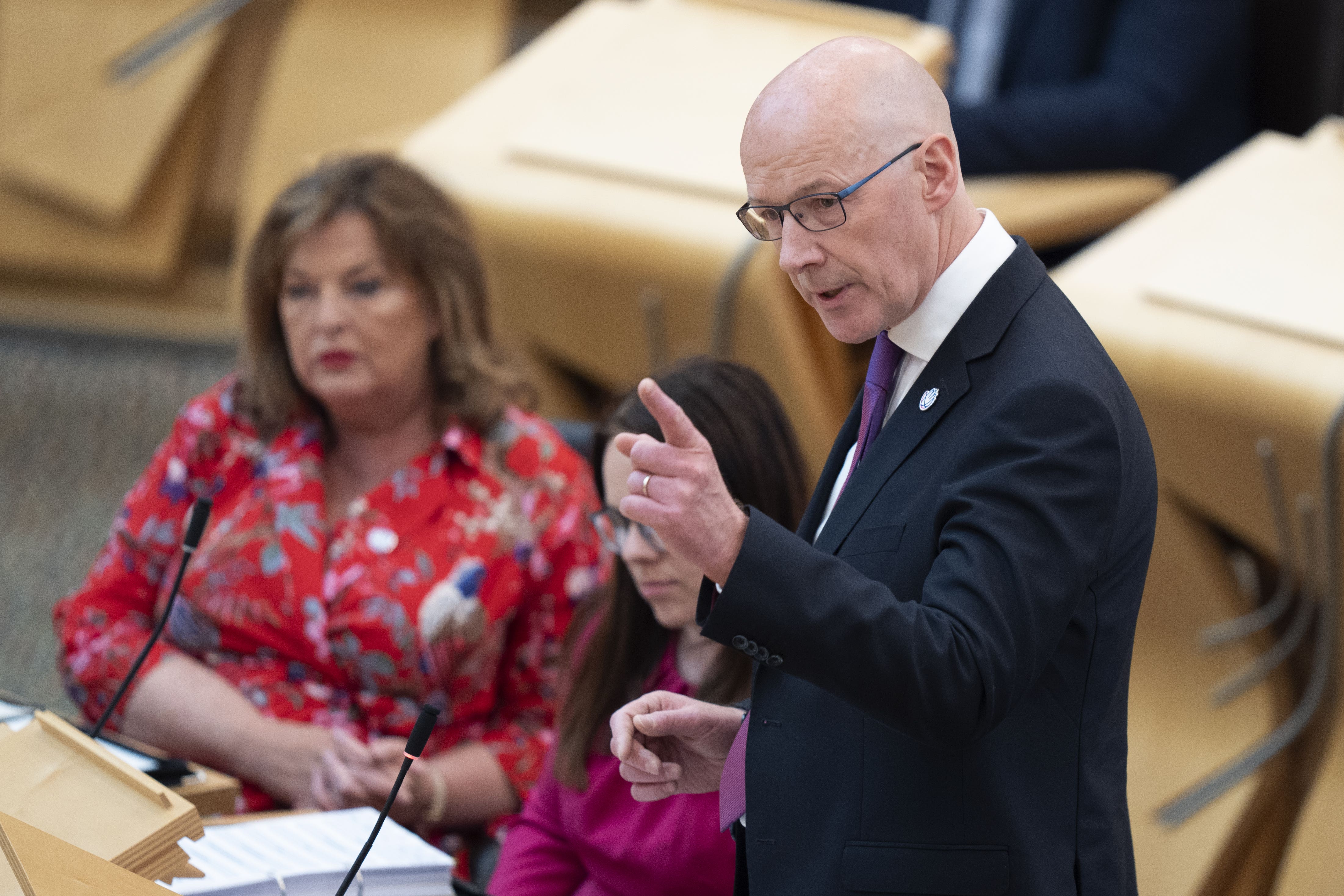Will of Scottish people should not be ‘thwarted’ by UK government – Swinney
The Scottish First Minister was commenting on the potential for another Scottish independence referendum.

Your support helps us to tell the story
From reproductive rights to climate change to Big Tech, The Independent is on the ground when the story is developing. Whether it's investigating the financials of Elon Musk's pro-Trump PAC or producing our latest documentary, 'The A Word', which shines a light on the American women fighting for reproductive rights, we know how important it is to parse out the facts from the messaging.
At such a critical moment in US history, we need reporters on the ground. Your donation allows us to keep sending journalists to speak to both sides of the story.
The Independent is trusted by Americans across the entire political spectrum. And unlike many other quality news outlets, we choose not to lock Americans out of our reporting and analysis with paywalls. We believe quality journalism should be available to everyone, paid for by those who can afford it.
Your support makes all the difference.The will of the Scottish people on independence should not be “thwarted” by the UK government if the SNP wins a majority of seats, Scotland’s First Minister has said.
At his party’s manifesto launch, John Swinney said the SNP winning a majority of Scottish seats on July 4 will see him seek negotiations with Westminster on another referendum.
But during a visit to Scotland this week, Labour leader Sir Keir Starmer said he would not engage in such talks if he becomes prime minister.
Speaking to LBC on Sunday, Mr Swinney said: “Keir Starmer accepts that the United Kingdom is a voluntary union, it is a bringing together of the countries of the United Kingdom, in which Scotland is entitled to exercise our right to say ‘well, actually, we want to be governed differently as a consequence of our votes’.
They have been elected to govern Scotland and manage our NHS, our economy, our education system, the police service. All of these issues have been ignored and neglected by an SNP government obsessed with independence
“That should not be thwarted by the actions of the United Kingdom government.”
On the BBC’s Sunday Show, Scottish Labour leader Anas Sarwar reiterated his view that it is “for the Scottish people” to decide on independence and that another referendum would require support for separation to become the “settled will” of the people.
But Mr Sarwar – much like other politicians on both sides of the constitutional divide – refused to say what support would be required or how it could be quantified.
He added: “We’ve been really clear in this election campaign. I don’t support independence, I don’t support a referendum, there isn’t a consistent majority for independence, there isn’t a majority for a referendum.”
Douglas Ross, also speaking to the BBC, said he believes the United Kingdom was a voluntary union and the chance to leave was not taken in 2014.
Independence, he claimed, has been a distraction for the SNP-led government in Scotland.
“It’s getting in the way of everything they do,” he said.
“They have been elected to govern Scotland and manage our NHS, our economy, our education system, the police service.
“All of these issues have been ignored and neglected by an SNP government obsessed with independence.
“They have taken their eye off the ball on so many key issues, they have accepted that themselves.”
In a debate ahead of the 2021 Holyrood election, then first minister Nicola Sturgeon said her government “took our eye off the ball” on the drugs deaths crisis.
Meanwhile, Mr Swinney was also asked what he will view as a success for his party in the election.
He told LBC: “Becoming the largest party in Scotland, that would be my objective in this election. And that would be the largest party in terms of seats.”
It is understood the First Minister’s comments should not be taken as a shift in the SNP’s position on beginning independence negotiations.